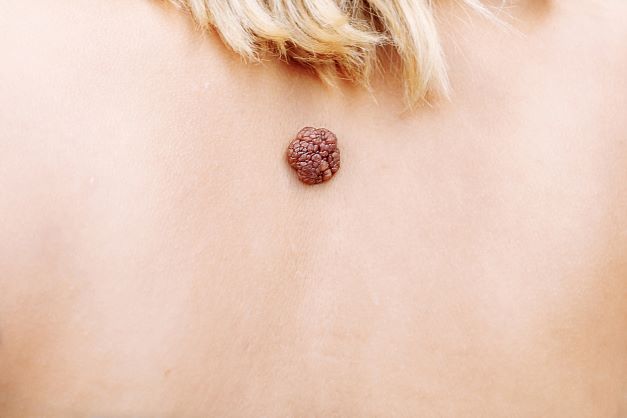The human body is attacked every day by countless fungi, viruses, bacteria, and parasites. “What helps repel that onslaught is our skin, one of the biggest defenders of our health that we have,” says Dr. Jeffrey Ross Gunter, a dermatologist at SummitMD Dermatology. “Sometimes, however, a germ invades the skin itself, and you have a skin infection. I help my patients to heal their skin so that it can return to doing its job effectively.”
Ringworm is a common fungal skin infection that Dr. Gunter treats. “Thankfully, there are no worms involved. Instead, it’s a rash that appears almost anywhere on your body, and people often have it in conjunction with athlete’s foot.” To confirm the diagnosis, he sometimes sends a sample of the infected nail, hair, or skin to a lab. If ringworm is confirmed, Dr. Gunter prescribes antifungal creams, ointments, or oral medications. “If it is scalp ringworm, I will prescribe an antifungal shampoo for the patient and everyone they live with since scalp ringworm is highly contagious. Any infected hair, including beards, will need to be shaved off. That may sound dire, but remember that the outlook for clearing the infection is really very good.”
Dr. Gunter has experience with viral skin infections. “I often see cases of herpes simplex,” he states. “It’s caused by the HSV-1 virus, and you’ve got it if you’ve ever had fever blisters or cold sores, which are also known as oral herpes or mouth herpes. Signs of the virus include burning, itching, or tingling before the blisters appear and last between 7-10 days. Once the blisters break open, they crust and heal. The blisters can be on the person’s lips or around the mouth and less often elsewhere on the face or on the tongue. Blisters produced by genital herpes occur on the anus, buttocks, vagina, or penis. Both oral and genital herpes can appear anywhere else on the skin. Patients can also experience flu-like symptoms, problems with urination, and eye infections.”
Dr. Gunter says that patients with herpes simplex type 1, or HSV-1, get it through skin-to-skin contact with an adult who has the virus. “Remember, though, that they don’t have to have the sores to be contagious. Herpes simplex type 2, or HSV-2, is mostly spread through sexual contact. Unfortunately, neither type ever leaves the body. It can go dormant after the first outbreak and be triggered by a fever or illness, stress, surgery, sun exposure, or menstrual periods. To treat it, I prescribe an antiviral oral medication or cream.”
Cellulitis is a potentially serious bacterial infection treated by Dr. Gunter at SummitMD Dermatology. “The bacteria infect the deep layers of skin and tissue beneath the skin. The first sign is usually red and swollen skin that often feels warm and tender. Cellulitis can appear anywhere on the skin. Adults often get it in a lower leg while in children, it usually appears on the face or neck.”
Dr. Gunter warns that anyone who thinks they have cellulitis should get immediate medical care. “Without treatment, the infection can spread quickly to lymph nodes and into the bloodstream. This can result in permanently damaged lymph vessels or a blood infection. Thankfully, people who are treated early enough with oral antibiotics and good wound care can expect to make a full and quick recovery within 48 hours. If you don’t, however, call your doctor because people with severe cases of cellulitis – those who have low blood pressure, a rapid heart rate, or trouble concentrating – could need to be treated in a hospital.”
Dr. Gutner emphasizes that because many skin infections are contagious, immediate treatment is important. “A good dermatologist will help you clear the infection safely and effectively.”
Jeffrey Ross Gunter, MD, FAAD is a board-certified dermatologist at SummitMD Dermatology. He is a graduate of the Keck School of Medicine at the University of Southern California where he was previously a Clinical Professor of Dermatology and Chief Resident of Dermatology at the LAC/USC Medical Center in Los Angeles, CA.





